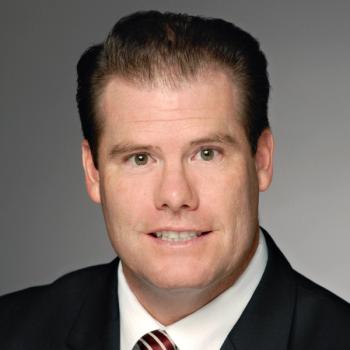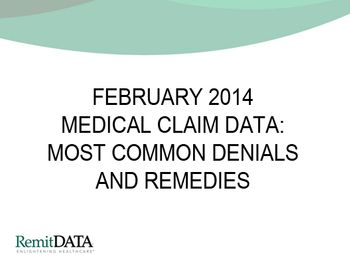
The ICD-10 implementation delay was cause for celebration for many medical practices, but it angered and frustrated many in the healthcare industry.

The ICD-10 implementation delay was cause for celebration for many medical practices, but it angered and frustrated many in the healthcare industry.

Robert Tennant, senior policy adviser of government affairs for the Medical Group Management Association, discusses the ICD-10 delay.

Congress decided that physicians need one more year to prepare for ICD-10. Here's what it means for your medical practice and the healthcare industry overall.

Sometimes insurance companies get between patients and their physicians; especially this time of year when health plans make changes.

Do you cultivate positive, working relationships with your key departments or vendors? If not, changing your approach might yield amazing results.

The 90-day “payment grace period” for exchange insured patients puts physicians at risk for 60 days if patients don't pay their premiums.

Payers know that correctly writing down every patient encounter is difficult for physicians, if not impossible. Therefore, exploiting this is easy for them.

Each day we learn more about how payers are processing claims. Here's what your medical practice needs to know.

RemitDATA's director of product management, Aaron Hood, explores the most common unexpected denials at practices nationwide, with a focus on family medicine.

Here are some very basic strategies that may help medical practices to do a better job of collecting payments from patients.

If it were possible to predict insurance payments, I wouldn’t be so overwhelmed by appeals and take backs.

Traditionally, physicians do not charge each other for medical care. Unfortunately, this belief does not seem to be well understood by all doctors.

The ICD-10 transition will require practices to spend time and money, but doing so now will keep your practice from having to commit even more time or money after October 1.

Insurance companies are being sneaky about keeping your money. Here are some of those secrets they'd rather you not know, and what you can do about it.

Your EHR and practice management system vendors are important partners in the ICD-10 transition, so be sure they are ready with these 15 questions.

Rural hospitals and their patients are particularly vulnerable to loss of funding. This small rule change could make a significant impact.

There's plenty to do to get your medical practice ready for ICD-10, but proper training tops the list.

Here are eight questions your medical practice should be asking when it comes to testing your claims submissions for the upcoming ICD-10 transition.

The healthcare industry is changing and as such, so is the role of medical practice manager and the business of care delivery. Here's how to adapt.

When admitting patients to the hospital, knowing Medicare rules and making use of diligent charting can make all the difference.

Coding Questions? We've Got the Answers.

Avoid disruptions in your practice’s reimbursement by following these three steps to submit the most accurate code the first time, every time.

Don't let your medical practice billing department drop the ball when it comes to great customer service.

Now that compliance programs are mandatory, your practice needs to develop one. Here's how to get started.

Much like medical practices, revenue cycle solutions are trying to keep up with regulations and other healthcare changes. Here's what you need to know.